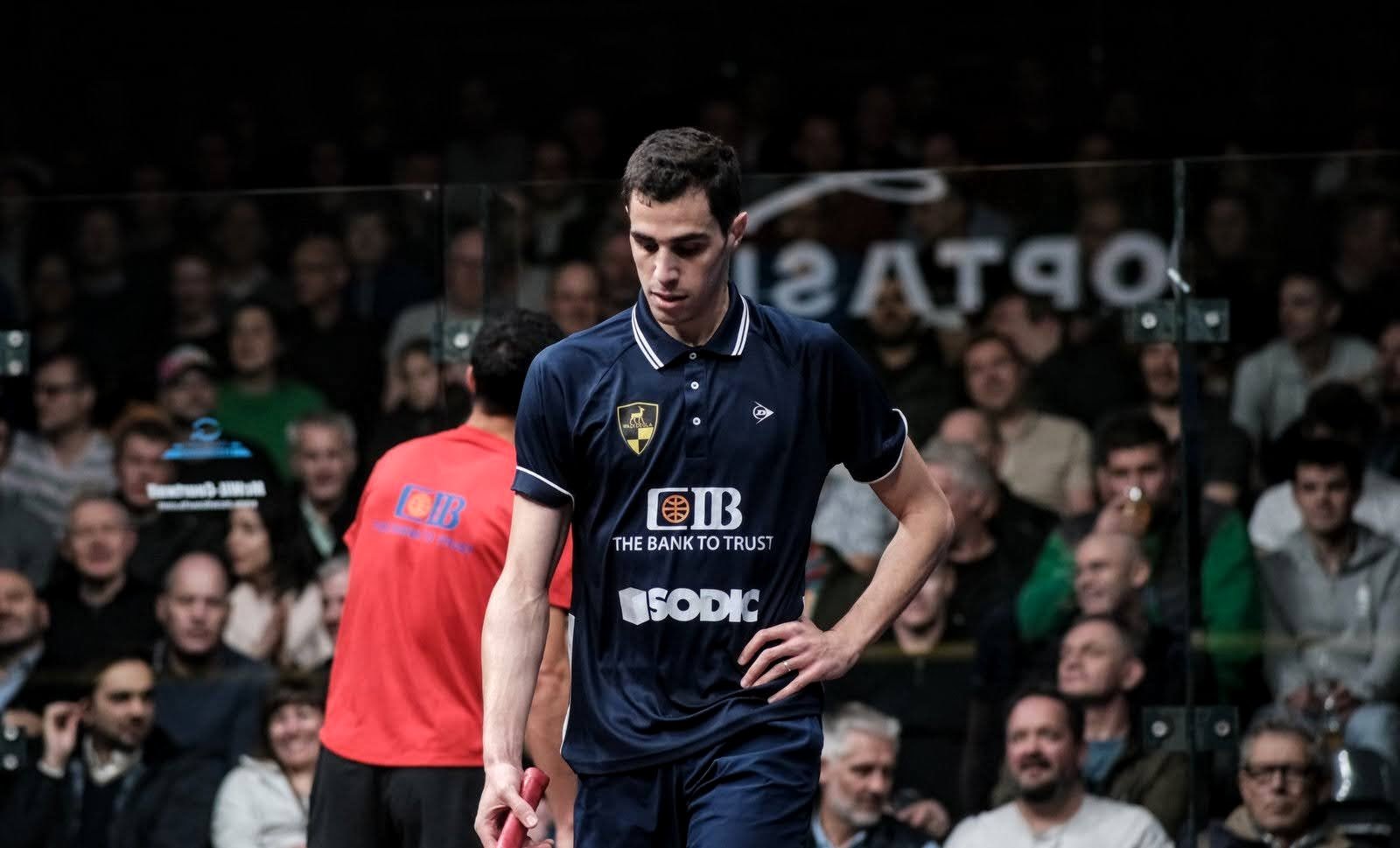We recently received a request from a regular reader of the Control the 'T' Newsletter for this blog post topic, which is awesome!
The reader asked if I could talk about some best practices for relaxing in-between points, which is something I often struggle with myself.
So, in this article, I'll be diving into some of the things I do to try to reset my mind and relax after a high-intensity point in order to prepare myself for the next one...
We all know how fast-paced squash can get, if you've just had a fast-paced mega rally in which you did a lot of work but didn't manage to come out on top, it can leave you pretty flustered when the point is over.
It's very easy to fall into the trap of dwelling on that rally and then losing focus for the next one. This often leads to you making mistakes or poor decisions in the next rally (or even the next few rallies).
The momentum of the game can change very fast in situations like this and before you know it, your opponent could be a few points ahead by the time you've got your head back in the game.
Often, the advice from everyone when it comes to relaxing between points is just to 'forget about it and focus on the next rally'. This is far far easier said than done and I don't really find it to be very helpful advice.
If you watch professional squash, you might have noticed that this is something that affects even the best players in the world. Clearly, it's no easy feat to just 'forget about it' after a rally.

Anyway, what else can you do after an intense rally that leaves you mentally flustered?
Well, whether you won the rally or not, my first tip would be to use the time you get in between points wisely. Don't rush into the next rally when you don't need to.
Something I see quite often (especially from junior players) is that they rush to the service box to begin the next rally as fast as possible, or rush to the return serve position as fast as they can to start the next rally.
I'm not fully sure why players do this, but it usually means that the first shot of that rally is poor, whether it's the serve or the return.
Take a bit of time to compose yourself, wipe the sweat off of your hand and maybe your face, maybe lob the ball back to your corner and just walk over to it. A lot of players also like to bounce the ball a few times before they serve too.
Take deep, controlled breaths to regulate your breathing and allow your heart rate to go down a little, and, while doing this, just try to loosen your body up a bit too. Give your arms or legs a shake if they're feeling tight.
I just want to stress that I'm not advising you to take as long as you want and obviously waste time between rallies, that's considered unsportsmanlike and unethical for a reason.
But, it's a given that you can have around 5-10 seconds between rallies without it angering your opponent or the referee. Use that time!
As I mentioned earlier, people often advise just to 'focus on the next rally', and that isn't helpful in my opinion as it's not specific at all. What part of the next rally do you focus on?
Something I often try to do is to focus my mind on my first shot of the next rally in particular. Think about exactly where you want to place the ball.
If you're serving, focus on where you want the serve to go. Will it be a lob serve? Will I hit it with some pace? Where am I aiming?
If you're returning, focus on where you want to send your opponent. Try to think about any weak points you've noticed in their game and target that. Should I hit it straight and deep? Crosscourt and deep? Do I want to volley it?
Of course, all of these depend on where your opponent's serve goes and you may have to adapt your return based on that, however, this tip is more about the thought process than the actual next rally.
By thinking about the first shot of the next rally, you're automatically beginning to forget about the previous rally and prepare your mind for a new rally.
As the game progresses, both players will get more and more tired. The later stages of a squash game are often where the winner is decided and it's crucial to make every effort to stay mentally composed.
In these later stages of the match, another tip would be to try to pump yourself up. Some players like to tap their racquet on their leg, others like to shout 'come on' to themselves.
If you've just won the rally, think about how you won it... Did you hit a nice winner? Did you outwork your opponent?
Regardless, you should be pleased to have won yourself a point and it'd certainly be nice to win another, right? Use that feeling to spur yourself on.
If you've just lost the rally, make every effort not to take it in a negative way, as this can affect you for a number of points to come. Think about what you did wrong and you can use that in your plan for the next rally.
My final tip for staying relaxed in between points is, whatever you do, don't accept defeat until the game has ended. As soon as you think 'I've lost this', you're beginning to accept defeat.
Also, just to finish off, a huge thanks to Doug for his suggestion of this topic, it was really interesting for me to think about and I think writing down these tips will help me put them to better use in my own game too.
It's quite a tricky topic to cover. Relaxing between points is something that affects different people in different ways, some people get a lot more tense than others after a big rally.
It's important to find things that work for you and try to stick to them, no matter how tough the match gets.
Also, if any of you have a topic that you'd like me to cover, please feel free to get in touch and let us know!
This article was taken from our On The 'T' Newsletter, if you're interested in receiving more content like this, please feel free to sign up using the subscribe section located at the bottom left of this page (or underneath the article if you're on mobile), thanks!
